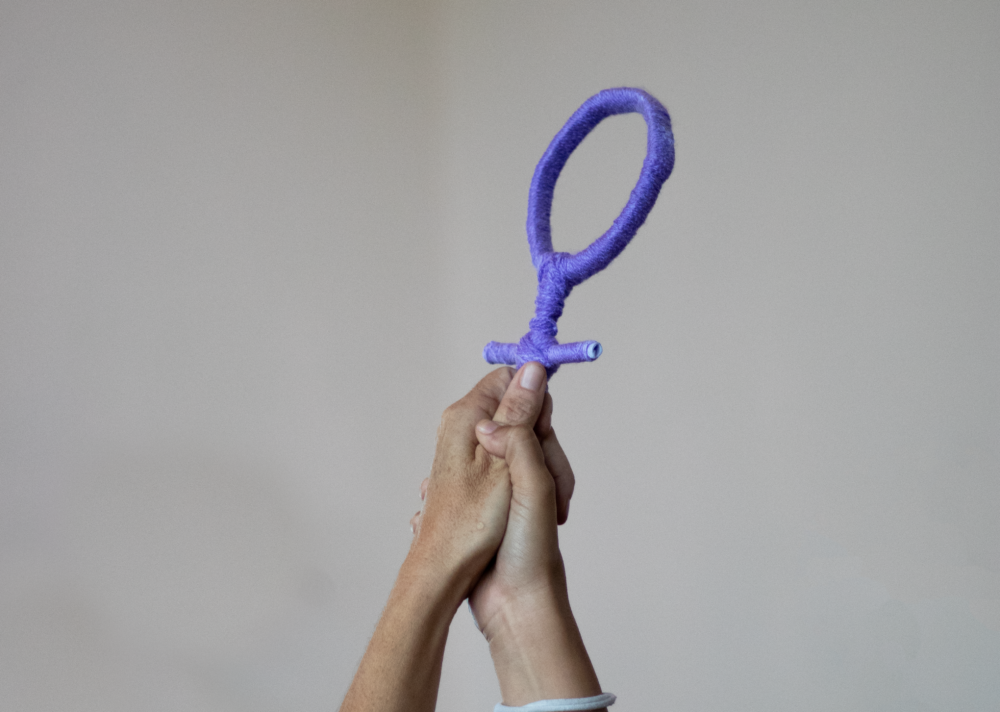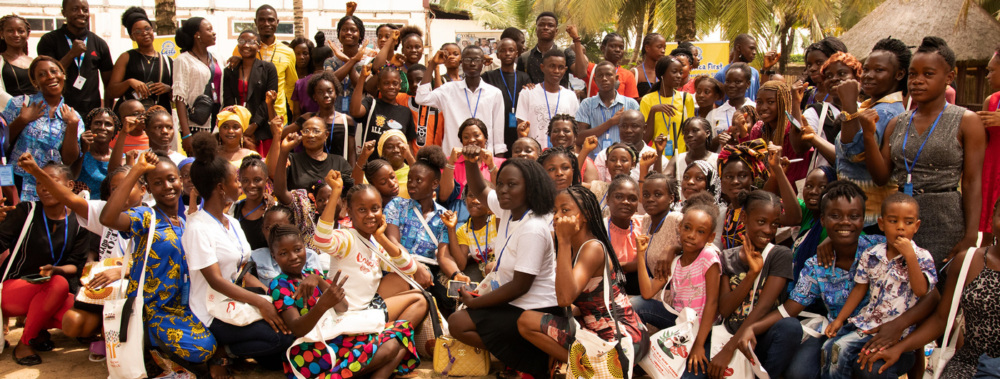
Gender justice, Safety and wellbeing
Gender justice, Youth power
This blog post was written by Senior Partnerships Manager Kieran Lewis, Senior Communications Officer Maria Creamer, and Regional Capacity Development Specialist for West Africa Amé Atsu David.
With teen participants representing Liberia, Sierra Leone, and Ethiopia, the summit laid the foundation for young people to work together to develop their capacity for advocacy and campaign for concrete change in their communities, in their countries, and throughout Africa.
On Monday, April 11, after more than a year of planning by a committed group of adolescents from Liberia and Sierra Leone, it was time for the summit to begin.
The first day of the summit focused on using social media to advocate for change. Participants spoke about the different social media platforms they liked to use personally and discussed how they could use those same platforms for advocacy. After reviewing examples of successful advocacy campaigns, the teens split into small groups and, armed with their mobile phone cameras, set about developing campaigns around issues that they had collectively identified.
[image_caption caption=”A boy takes pictures at the West Africa Adolescent Girls Summit. © GFC” float=””]

[/image_caption]
In the afternoon, the groups came together to present their campaigns and get feedback from their peers. For many, this was their first experience using social media for advocacy.
The next day, participants split into five groups, and each group identified a specific issue that they would focus on for the week:
GFC, local partners, and international partners worked together to create safe spaces where the adolescents could share their perspectives on these issues and collectively develop their capacity for advocacy.
On day 3 of the summit, the participating teens had the opportunity to interact with a diverse group of stakeholders, including government agencies; international, national, and local organizations; and religious leaders.
With an emphasis on facilitating intergenerational conversation and providing a platform to have their voices heard, the five issue-focused groups presented their campaigns, while asking questions of and demanding action from the adults in attendance.
[image_caption caption=”Girls participating in a workshop at the West Africa Adolescent Girls Summit. © GFC” float=””]

[/image_caption]
Thursday morning began with a panel discussion with senior representatives from the government of Sierra Leone, the Economic Community of West African States (ECOWAS), the National Civil Society Council of Liberia, and the Plan International African Union Liaison Office Ethiopia. The adolescents then took turns asking the panelists about the gaps they had observed in existing systems and the urgency for a shift in approach. Engaging directly with the panelists, the girls and boys became more confident and capable of taking the lead without any support from GFC or our community-based partners.
[image_caption caption=”A girl takes her turn at the microphone. © GFC” float=””]

[/image_caption]
Equipped with the knowledge to successfully advocate at various levels, the teens spent the rest of the day producing their calls to action, focusing on concrete demands that they wanted specific stakeholder groups to respond to and act on. Some examples include:
As they developed the summit, the adolescents on the planning committee were determined to have representation from high-level politicians. On Friday morning, the Vice President of Liberia, Jewel Howard Taylor, traveled to the summit to hear directly from the participants and respond to their calls to action.
One by one, the teens took the microphone and spoke about how gender inequities within the education system, harmful traditional practices, and a lack of affordable health care were limiting the potential of girls in Liberia and throughout West Africa.
The Vice President, after listening closely to each speaker, responded to their demands. She agreed to take their calls to action to the Liberian parliament, engage with the First Lady of Sierra Leone, and explore avenues with ECOWAS and the African Union to ensure that the impact of the Adolescent Girls Summit was felt far beyond the borders of Liberia. (The following week, she contacted GFC to explore in more detail how she could support the adolescents who so impressed her at the summit.)
[image_caption caption=”Jewel Taylor, the Vice President of Liberia, responds to the young people and their calls to action. © GFC” float=””]

[/image_caption]
For many of the adolescents, their conversations with the Vice President felt like the beginning of real teen-led advocacy in Africa. After a nonstop week of activities, they came away full of energy and enthusiasm and with no shortage of ideas for what they could do next!
Global Fund for Children supports a network of six community-based organizations in West Africa that are tackling violence against girls in their own communities, while empowering girls to exercise agency and autonomy over their bodies and their lives. The adolescents who led the design process for the summit participate in the programs of these GFC partners.
This initiative is a partnership between Tides Foundation, People’s Postcode Lottery, and GFC.
Header photo: Participants in the West Africa Adolescent Girls Summit. © GFC
